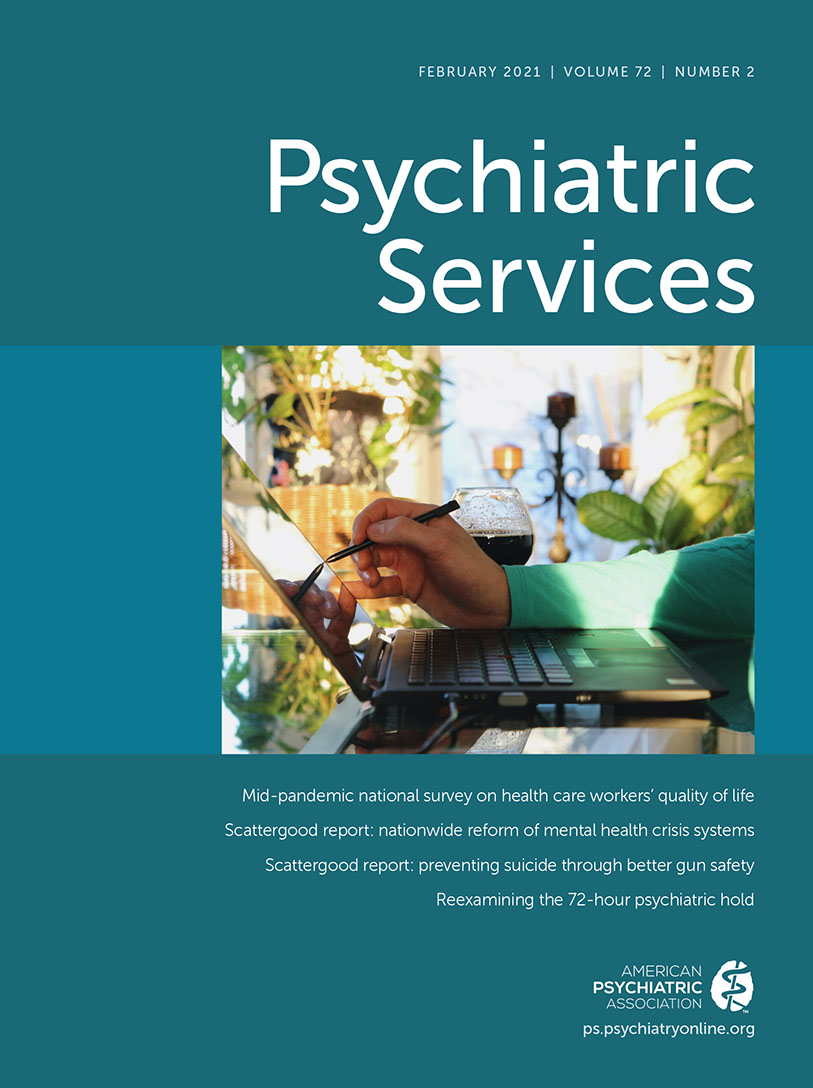Emergency Department Peer Support Specialist Program
On May 1, 2018, the North Carolina Healthcare Foundation (NCHF) awarded a grant to six hospitals within the state to embed peer support specialists within their emergency departments to target substance abuse. Our hospital emergency department (ED) was one of the grant recipients, and the program was officially implemented in the hospital on August 1, 2018.
The main goals of this pilot program were to engage with patients who presented to the ED with substance use disorders; to connect patients to community resources, such as treatment, social service agencies, and harm reduction services; to decrease future ED and inpatient services utilization; and to implement postdischarge handoff protocols. Additional goals were to learn the benefits of peer support for patients and to scale the model through systems change and policy reform. The core requirement for this program was to hire two full-time certified peer support specialists. Other requirements included participation in all program meetings, learning sessions, and site visits and submission of program data to NCHF to evaluate outcomes. Data from all sites were submitted to NCHF to track the number of patients served before and after peer contact, ED visit rates, hospitalizations, 30-day readmission rates, and referrals to medication-assisted treatment (MAT).
This program recognized that given the preponderance of peer services in community-based settings, unique skillsets and training are required for peers to be successful in a hospital setting. The administrative behavioral health director spent extensive time with the human resources department to create an accurate job description to ensure that eligible candidates were not screened out due to typically restrictive policies. The peers were trained in approved core concepts as outlined by the North Carolina Certified Peer Support Specialist Program and were designated as peer support specialists.
The peer support specialist’s role was to build rapport with patients in the ED, develop crisis plans with patients, support patients during their hospital stay if admitted to inpatient service, educate them on harm reduction, and link them with community-based resources after discharge. All sites were required to provide clinical supervision to peers from a licensed addiction medicine professional.
Peer specialists began their day by reviewing charts of ED patients and inpatients for whom substance use was a presenting complaint. The specialists worked closely with care managers and health care providers and then introduced themselves to their patients to engage and build trust. Peer specialists’ personal experience of “been there, done that” and their readiness to self-disclose and speak “street talk” with patients were of immeasurable value in facilitating patients’ willingness to engage.
One of many cases that highlight the impact of the peer support specialists involved patient B, who presented to the ED twice in the same day about a year ago after overdosing on fentanyl-laced heroin. Even after extended interaction, he left against medical advice both times. However, the seed of recovery had been planted by the peer support specialists. He fortunately survived another near-fatal overdose a few weeks later. He was given support and encouragement by peer support specialists through his opiate withdrawals, and after clinical stabilization, he was transported by a peer to a long-term faith-based treatment facility. To this day he maintains contact with our peer support specialists and is doing well.
The cumulative program data from six hospital ED sites show that 4,166 patients were served by the peer support specialists in the 18 months since program implementation. Cumulatively, there was a 35% reduction in ED visits (from 7,690 to 5,036), a 38% reduction in hospitalizations (from 2,617 to 1,615), and a 6% reduction in 30-day readmissions (from 861 to 811). In our hospital, the effect of the peer support specialists was even more pronounced. There was a 38% reduction in ED visits (from 2,021 to 1,251), a 52% reduction in hospitalizations (from 821 to 398), and a 27% reduction in 30-day readmissions (from 796 to 580). Cumulatively, 10.7% (N=446) of the total patients served were referred to MAT. The impact on individual lives, family integrity, and the community as a whole is beyond measure.
Peer support specialists’ relentless commitment and passion to help their patients, along with support from physicians and hospital leadership, made this program successful and a role model for others.



